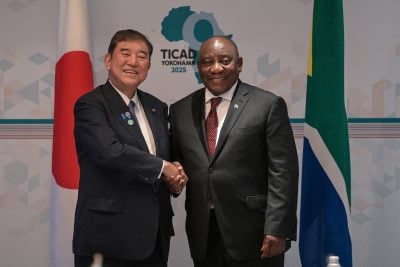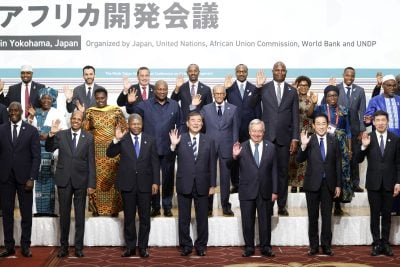In its last week the outgoing government of former President Muhammadu Buhari unveiled Nigeria Air. The ceremony on 26 May – just before President Bola Tinubu took office on 29 May – took place despite a Federal High Court ruling in November 2022 that all parties involved in the proposed national carrier must “maintain the status quo”. The unveiling was immediately slated by the country’s Senate Committee on Aviation; but its proponents vow to carry on.
National airlines have long been a matter of national pride. On the eve of independence, Nigeria created its first national airline, Nigeria Airways, symbolising the fledgling country’s aspirations of sovereignty and national pride. Founded in 1958, the venture abruptly unravelled and was liquidated in 2003, due to mismanagement, financial difficulties and corruption, leaving a gaping hole in Nigeria’s aviation industry and national psyche.
Four subsequent attempts to revive a national flag carrier failed, until a deal last year between Africa’s largest airline, Ethiopian Airlines, and the government breathed new hope into the dream.
In September a consortium of investors, led by Ethiopian Airlines, won a bid to launch Nigeria Air. Ethiopian Airlines would hold a 49% stake, institutional Nigerian investors under the Nigerian Sovereign Fund a 46% share, and the Nigerian federal government the remaining 5%. Launching a national airline was one of former President Buhari’s 2015 election campaign promises.
Thoroughly denounced
On 6 June the Senate Committee on Aviation slammed the new flag carrier as “shrouded in secrecy” and one member called it a “fraud”, during an investigative hearing with Airline Operators of Nigeria (AON) and representatives of the ministry of aviation. The Committee recommended that the ministry of aviation and its partners in the project “immediately suspend flight operations”.
During the hearing the former minister of aviation, Hadi Sirika, claimed that Nigeria Air was only “unveiled” and not “launched” during the fanfare on 26 May. At that time Sirika said the airline was expected to commence operations in a month’s time.
“The Nigeria Air project was shrouded in secrecy to the extent that it was fraudulently displayed as a new national carrier contrary to the extant court order and international rules that strictly guide airline operation. This was indeed an embarrassment to the committee,” said Senator Bala Nallah, a member of the Committee on Aviation. Under questioning by the Committee, acting managing director of Nigeria Air, Captain Dapo Olumide, said the aircraft used for the unveiling was chartered.
Rival airlines
The November court order to halt the take-off was obtained by a group of rival local airlines under the AON umbrella.
The High Court blocked the Nigeria Civil Aviation Authority (NCAA) from issuing Nigeria Air an Air Operator Certificate.
The AON protested that the new carrier’s strategic partnership with Ethiopian Airlines gave it an unfair advantage that would stifle the growth of domestic airlines by monopolising domestic, regional and international routes.
The “Vanguard For Good Governance”, a group allied with Nigeria’s ruling party, the All Progressives Congress, slammed the Senate Committee on Aviation hearing as a farce conducted in allegiance with rival local airlines.
The group also warned the Nigerian president Bola Tinubu that the alleged smear campaign threatened to derail the cultural heritage, national pride, job opportunities, and foreign direct investment that Nigeria Air’s successful launch could bring.
Following a media maelstrom of bad press, Nigeria Air plans to proceed with obtaining its Transport Licence and Air Operator Certificate in compliance with Nigeria Civil Aviation Authority (NCAA) regulations, the consortium says.
In defence of the deal
Zemedeneh Negatu is global chairman of Fairfax Africa Fund LLC, a Washington DC-based investment firm and the lead investment banking advisor to the consortium of investors of Nigeria Air. He points out that, as the consortium’s strategic investor, Ethiopian Airline’s Triple AAA credit rating could be leveraged to de-risk Nigeria’s aviation industry to make it viable for investors, manufacturers, and leasing companies.
The adviser points out that Nigerian airlines currently lack the capacity and regulatory approvals to fly directly to the US or the UK. Some do have code-share agreements or partnerships with international carriers to provide connections to these destinations.
Ethiopia’s flag carrier, though, flies to 127 international destinations in the Middle East, Europe, Asia, and the Americas. It says it goes to more African destinations than any other airline.
A successful launch of Nigeria Air should also drive down air fares, providing a boost to the country’s flailing commercial and tourism sector, as well as for 220m Nigerian travellers in the country, as well as the patchwork of Nigerian communities criss-crossing the globe.
“The advantage of this airline is it is well capitalised, it will start with a quarter of a billion dollars in equity, [with] no debt whatsoever,” the US-based investment adviser says.
Ethiopian Airlines plans to pay their investment in $122.5m cash, as do the institutional investors, the Sovereign Wealth Fund of Nigeria; the government plans to pay its equity contributions in “non-cash services” such as office space, he says.
“One of the big challenges for airlines in Nigeria is that they are undercapitalised. Almost all of them are owned by one single wealthy individual. No airline works like that anywhere in the world. Not even Elon Musk would fund an airline by himself.”
Struggle simmers on
As the quest for the launch of a Nigerian national carrier continues, so does the debate on how it would impact the aviation market.
Sindy Foster, an aviation analyst at London-based Avaero Capital Partners, defends the local airlines’ opposition to the Nigeria Air project, calling for a different approach to a national airline that aligns with the nation’s interests.
“It is easy for them to try to turn this into a political paid campaign, or tribal-based paid campaign, but there is genuine public and stakeholder interest and opposition.
“Nobody needs paying to understand that the deal they are trying to strike is not in the interest of Nigeria, Nigerian aviation, nor passengers.
“I personally hope this version of the Nigeria Air project does not move forward. There is an appetite in Nigeria for a national carrier. But this private version which has used public finances which will benefit the 95% private investors, is not the way forward,” she says.
Want to continue reading? Subscribe today.
You've read all your free articles for this month! Subscribe now to enjoy full access to our content.
Digital Monthly
£8.00 / month
Receive full unlimited access to our articles, opinions, podcasts and more.
Digital Yearly
£70.00 / year
Our best value offer - save £26 and gain access to all of our digital content for an entire year!

 Sign in with Google
Sign in with Google 




